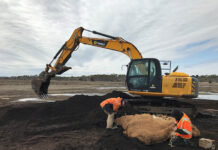
NEW JERSEY – Once word spread about a vaccine being made available at the end of 2020, there was a collective sigh of relief. But it came with a challenge. How do you vaccinate millions of people?
Health officials broke down the populace into phases based on how likely they are to come into contact with the virus, how severe the virus is to that particular group, and how necessary an occupation is to society. This is why health workers and those who live in long-term care like nursing homes were in the first phase.
This was coined Phase 1A. It includes paid and unpaid health care workers. For example, doctors, custodial workers, and volunteers who work at a hospital would be in this group. It is described as those with “potential for direct or indirect exposure to patients or infectious materials as well as residents and staff of long-term congregate settings.”
These began on December 15. Those living and working at more than 500 long-term care facilities and homes for veterans were scheduled for vaccinations through the beginning of February.
As of January 7, the state also allowed police officers and firefighters to sign up for vaccinations. They are usually Phase 1B, but the vaccination schedule was opened to them as well. This includes volunteer firefighters.
The rest of Phase 1B includes seniors 75 and older and essential workers.
Phase 1C includes other essential workers, adults 65 and over, and persons aged 16-64 with medical conditions that increase the risk for severe COVID-19 as defined by the Centers for Disease Control. This phase has yet to be finalized. It will be informed by the U.S. Department of Homeland Security’s Cybersecurity and Infrastructure Security Agency (CISA) “Essential Critical Infrastructure Workforce” advisory list, ACIP recommendations, and recommendations of the NJDOH COVID-19 Professional Advisory Committee.
After this, is the general public. They are all in Phase 2.
The State Department of Health’s goal is to vaccinate 70 percent of the adult population within six months. This amounts to 4.7 million people.
New Jersey received 400,000 vaccines in December. Of those, about 120,000 were reserved for long-term care facilities while 280,000 were provided to hospitals and community sites.
The state has not publicized a solid timeline for how they will cycle through the phases. A number of things could happen which could change any timeline, such as availability of the vaccine.
Since there are 650,000 people eligible for Phase 1A, it could be some time before Phase 1B starts.
Phases
For clarity’s sake, the phases are being listed here in the briefest way possible. Keep in mind that rules and regulations change, and some of these phases are still being defined. This information comes from the CDC:
- Phase 1A: Long term care facility residents, health care workers
- Phase 1B: People 75 or older, frontline essential workers (firefighters, police, educators, food and agriculture, manufacturing, corrections officers, post office, public transit, grocery store)
- Phase 1C: People 64-75, people 16-64 with high-risk medical conditions, other essential workers (transportation and logistics, food service, construction, finance, IT and communication, energy, media, legal, engineers, water and wastewater)
- Phase 2: All others 16 and older
- The vaccines have not been made available for the those younger than 16 yet. Testing is underway on younger age groups.
How To Register
In order to get the vaccine, some local facilities have their own registration system. Some of them even have walk-in registration. You’ll have to contact them or read their websites to learn more.
To register with the state, visit covidvaccine.nj.gov
Even if you are not in the phase to get vaccinated, you can be put on a list to be notified when the vaccine is available for you.






